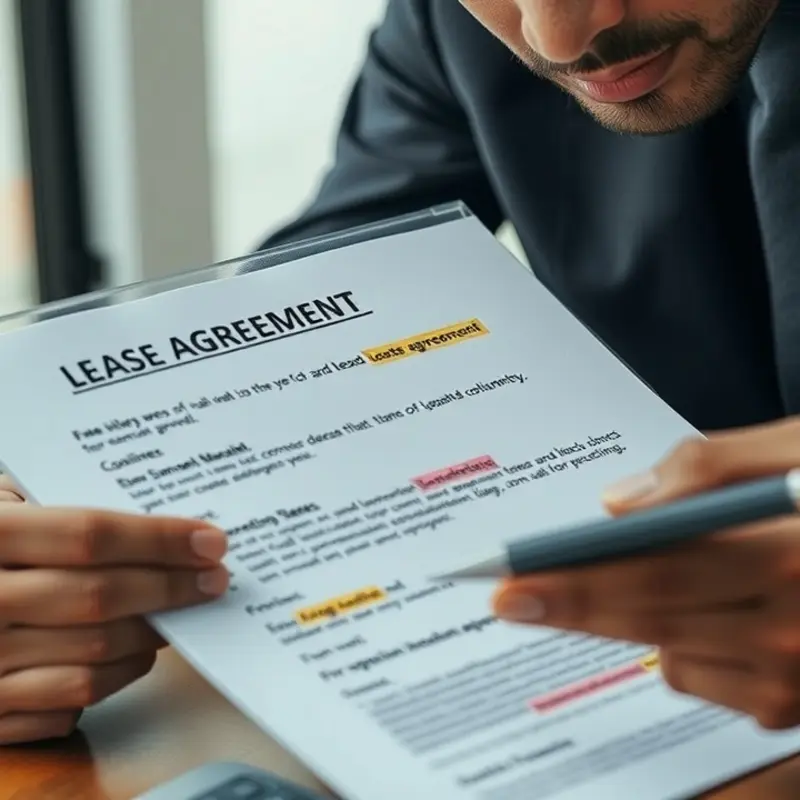Renting your first home can be both exciting and overwhelming, especially for young professionals, first-time renters, and families. Understanding how to manage your finances, navigate leasing agreements, and make informed decisions is essential to creating a stable, happy home. This guide is designed to offer you practical financial advice and straightforward lease guidance to help you feel confident in your renting journey. From budgeting tips to understanding lease terms, you’ll be armed with the knowledge necessary to make smart choices in a market that can often seem daunting. Whether you’re a student seeking a cozy apartment or a couple planning for your future, this resource will help you demystify renting and establish financial clarity.
Budgeting for Your New Home

Establishing a solid budget is essential for anyone looking to rent, especially young professionals eager to master their finances. Your budget will set the stage for a financially stable future and make your renting experience smoother. Let’s explore how to effectively budget for rent, utilities, and other personal expenses without compromising your lifestyle.
Start by identifying your monthly income, which includes your salary, any side hustle gains, or passive income. This is your total available amount to allocate across your financial commitments. A common budgeting principle is the ’50/30/20 rule.’ For renting, we’ll refine this as the ‘30% rule.’ This suggests that you allocate no more than 30% of your income to rent. Why? This proportion offers a balance, allowing room for other essential expenses and savings.
Next, let’s delve into your other expenses. List your fixed costs: utilities, internet, and commuting. Variable expenses might include groceries, dining out, and entertainment. Reserve a portion of your budget for these categories. Remember to account for irregular expenses like annual subscriptions or seasonal clothing.
Now, consider your savings. A healthy budget should prioritize savings for future needs and emergencies. Ideally, allocate 20% of your income toward savings and debt repayment. Within this category, establish an emergency fund. A good rule of thumb is to aim for three to six months’ worth of living expenses. This fund acts as a safety net for unexpected situations.
An essential component of budgeting is tracking your spending. Use whatever system works best for you, whether it’s a spreadsheet or a budgeting app. Revisit your budget monthly to adjust for changes in income or expenses. This practice ensures that your budget aligns with your current financial situation.
While creating your budget, consider lifestyle priorities like travel or hobbies. Designate funds toward these passions without jeopardizing your financial health. Being financially savvy doesn’t mean depriving yourself; it’s about making informed choices and setting realistic boundaries.
If your budget feels tight, explore ways to reduce costs or increase income. Consider location-based cost differences and travel options to find affordable living spaces. Resourceful living can also include seeking renter credit improvement tips to lower future rental costs through improved credit scores.
Ultimately, a well-planned budget is more than numbers; it reflects your financial habits and goals. With these steps, you can confidently secure a lease that fits your means, supporting a lifestyle that’s both comfortable and financially prudent.
Deciphering Lease Agreements

Navigating the maze of a lease agreement requires a keen eye. Understanding can empower you as a tenant, helping to avoid future complications. Let’s explore key terms and avenues for clarification.
Security Deposits are common in leasing, serving as a safety net for the landlord against potential damages or missed rent. It’s crucial to know the exact conditions under which your deposit will be returned. Make sure the lease clearly states how and when you’ll receive this sum at the end of your tenancy, and what deductions, if any, might apply.
Maintenance Responsibilities can vary greatly between leases. Typically, landlords handle major structural repairs, while tenants take care of minor maintenance, like changing light bulbs or keeping the place clean. However, always confirm these responsibilities within the lease. It’s also wise to inquire about emergency procedures and after-hour maintenance plans to avoid unexpected hassles.
On the topic of Lease Duration, ensure you understand the implications of the lease term length. Month-to-month leases provide flexibility but can sometimes mean more frequent rent increases. In contrast, term leases—like one or two-year agreements—often offer more stability but with potential penalties for early termination. Knowing your intentions and plans will guide you towards making a decision that aligns with your lifestyle and financial health.
Spotting red flags in lease agreements is imperative. Look for clauses that permit sudden rent raises or allow the landlord to enter your apartment without notice. Be wary of overly restrictive policies or ambiguous language that might be open to interpretation. Clarity is key—a legitimate lease should not leave you guessing.
Don’t shy away from asking landlords or property managers questions. Inquire about procedures to handle rental disputes or billing errors like those outlined here, as understanding this process is essential for safeguarding your finances. Clarify any ambiguous statements and use your queries as an opportunity to assess the responsiveness and professionalism of your potential landlord.
Knowing your rights and responsibilities is crucial. You have the right to a safe and livable environment, and knowing how to assert these rights can protect you in challenging situations. Conversely, being aware of your responsibilities as a tenant will keep your relationship with your landlord smooth and obliging.
Taking the time to thoroughly read and understand your lease agreement can save you a wealth of troubles and unnecessary expenses in the future. With this knowledge, you can sign your lease with confidence, fully aware of your obligations and rights.
Final words
Renting can be an enriching experience when approached with financial wisdom and clarity. By creating a well-structured budget and understanding your lease, you can make the most of your renting journey—turning your new home into a comfortable sanctuary without the financial stress. Remember, being informed is your best tool in the world of renting. With thoughtful planning and the right resources, you can confidently navigate your first lease and enjoy the freedom that comes with having your own space. Investing time in these financial skills now will pay off immensely in the future.









